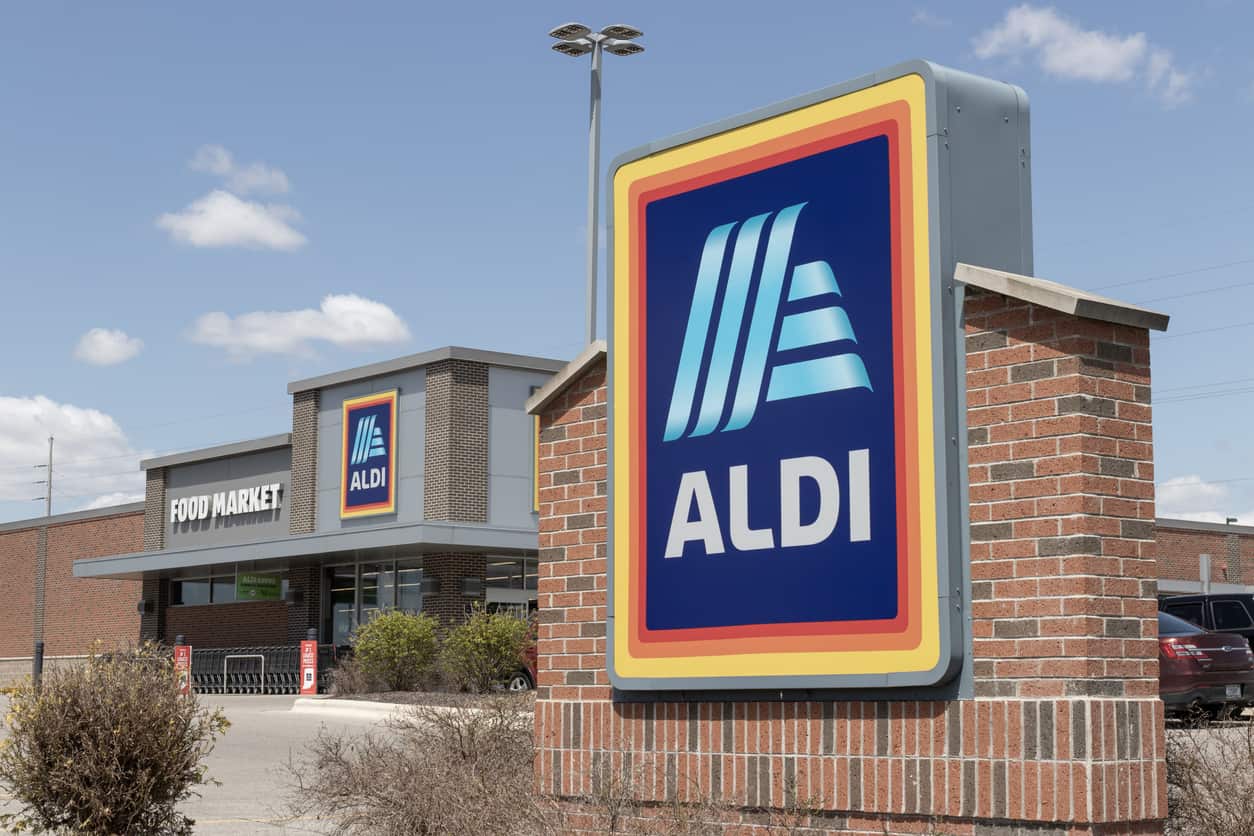
iStock.com/jetcityimage
Does America Need More ALDI Stores?
ALDI, the discount grocery retailer, has set its sights on a significant expansion across the United States. Specifically, ALDI aims to introduce 800 new stores into the American landscape by the end of 2028. This includes the establishment of entirely new outlets as well as the transformation of existing locations currently operating under different banners that ALDI has procured. Presently, ALDI boasts a network of 2,300 stores spread across the nation.
“Our growth is fueled by our customers, and they are asking for more ALDI stores in their neighborhoods nationwide.”
ALDI CEO Jason Hart via CBS News
The rationale behind this expansion endeavor is quite straightforward: ALDI aims to make affordable groceries more accessible to a wider array of communities across the U.S. This strategic move aligns with the growing consumer trend of seeking out avenues to cut costs at the checkout counter.
Despite a slight reprieve in inflation, grocery prices persist at elevated levels. Government data indicates that while the typical annual increase in the cost of food consumed at home hovers around 2.5%, the year 2022 witnessed a staggering surge of 11.4%, with another 5% increase noted last year. This surge in prices has sparked widespread concern among consumers, who are feeling the drain on their wallets. Many are finding it increasingly difficult to afford basic necessities, as the cost of living continues to rise.
A survey conducted by Yahoo Finance/Ipsos late last year found that a majority of respondents identified surging food prices as the biggest impact of inflation, far outweighing concerns about escalating gas prices or the rising cost of rent.
Consumers are increasingly pushing back against what they see as unfair price hikes, particularly in essential items like food, paper towels, and napkins.
The federal government is also stepping in, with the Federal Trade Commission taking legal action last month to halt a proposed merger between two of the nation’s largest grocery retailers, Kroger and Albertsons. The FTC argues that the $24.6 billion deal would stifle competition, potentially leading to higher prices for millions of Americans.
ALDI’s expansion strategy is underpinned by a combination of organic growth and the acquisition of Southeastern Grocers, which oversees the operations of Winn-Dixie and Harveys Supermarket stores.
In the announcement, Hart emphasized ALDI’s commitment to providing quality products at up to 40% savings, coupled with a convenient shopping experience, which fosters customer loyalty.
“With up to 40% savings on groceries, new customers are inspired to try us out, and existing customers keep coming back. While price is important, we earn their loyalty by stocking our shelves with only the best products and offering a quicker, easier, and more enjoyable shopping experience.”
ALDI CEO Jason Hart via Fox Business
This ambitious expansion comes with a hefty price tag, as ALDI projects an expenditure totaling $9 billion over the course of five years.
Expanding beyond its stronghold in the Midwest and Northeast, ALDI plans to open approximately 330 new stores in these regions. Furthermore, it aims to bolster its presence out West, particularly in Southern California, Arizona, and Las Vegas.
A phased approach will commence in the Southeast this summer, with ALDI converting Winn-Dixie and Harveys Supermarkets stores to its brand. Hart highlighted this move as a response to the significant demand for affordable, quality groceries in the region.
Additionally, ALDI pledges to construct and renovate stores with sustainable features like LED lighting, eco-friendly refrigeration systems, and rooftop solar panels.
Discussion Questions
How might ALDI’s ambitious expansion strategy challenge traditional grocery retailers’ business models, and what adaptations could these incumbents consider to stay competitive in an evolving market landscape?
What broader implications does the FTC’s regulatory action signal for the future of competition within the grocery retail sector, and how might it influence strategies pursued by both established players and emerging challengers like ALDI?
